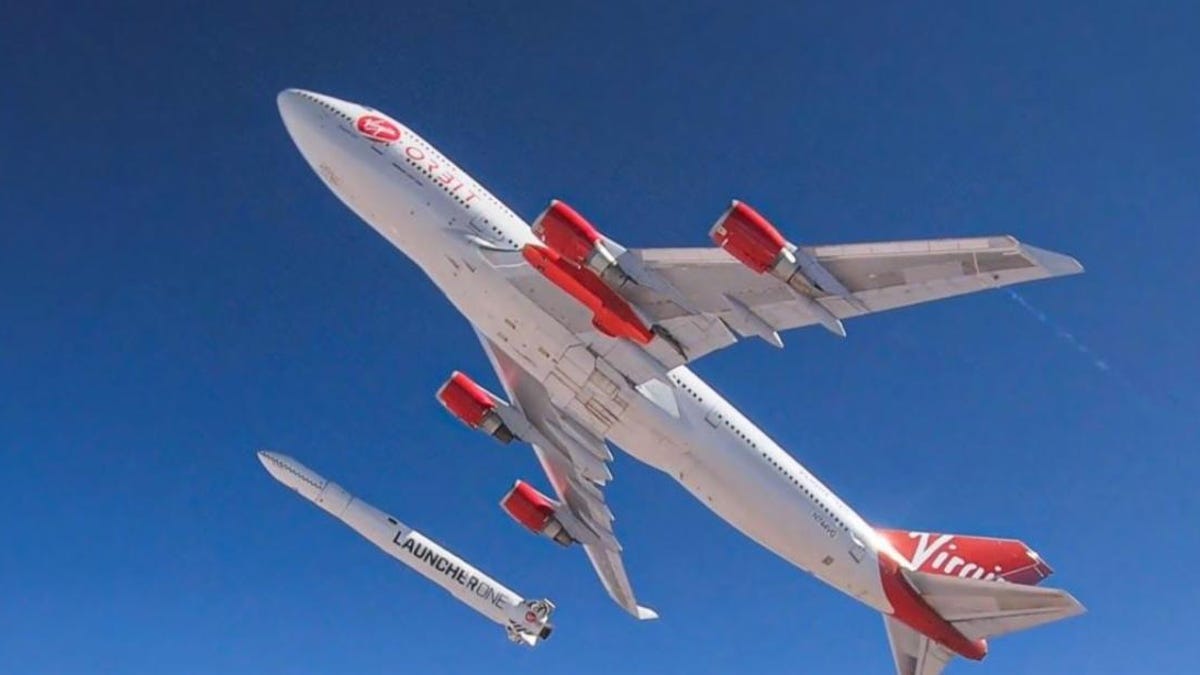Virgin Orbit makes it to space with dramatic mid-air launch
Richard Branson's company sent its LauncherOne rocket to orbit for the first time.

Virgin Orbit's Launcher One will be released from a modified 747.
After a false start last year, Virgin Orbit successfully carried several satellites to orbit on Sunday by dropping its LauncherOne rocket from the belly of a jet and lighting it up at altitude.
The company's modified 747, named Cosmic Girl, took off from California's Mojave Air and Space Port around 10:40 a.m. PT. About an hour later, after making it to the drop point over the Pacific Ocean and clearing a round of checks, LauncherOne was released and ignited.
From there, a series of Newton engine burns carried the rocket and its payloads up to space where they were successfully deployed.
"This magnificent flight is the culmination of many years of hard work and will also unleash a whole new generation of innovators on the path to orbit," Branson said in a statement.
Today's sequence of events for #LaunchDemo2 went exactly to plan, from safe execution of our ground ops all the way through successful full duration burns on both engines. To say we're thrilled would be a massive understatement, but 240 characters couldn't do it justice anyway. pic.twitter.com/ZKpoi7hkGN
— Virgin Orbit (@Virgin_Orbit) January 18, 2021
The payload included nine small CubeSats, including one from California Polytechnic University that can help predict space weather, and another from the University of Louisiana, Lafayette that'll allow students to connect and interact with it via a smartphone app. The full manifest can be found here.
During its Demo One launch in May, LauncherOne only ignited for about 10 seconds, cutting out early and falling into the Pacific Ocean. An investigation later determined a fault in the engine's internal plumbing was to blame.
Following the successful Demo 2 mission, Virgin Orbit says it will continue to go over the data from the flight as it moves into its commercial operation phase. Customers including the US Space Force and the UK's Royal Air Force have booked future launches with the company.
Follow CNET's 2021 Space Calendar to stay up to date with all the latest space news this year. You can even add it to your own Google Calendar.

